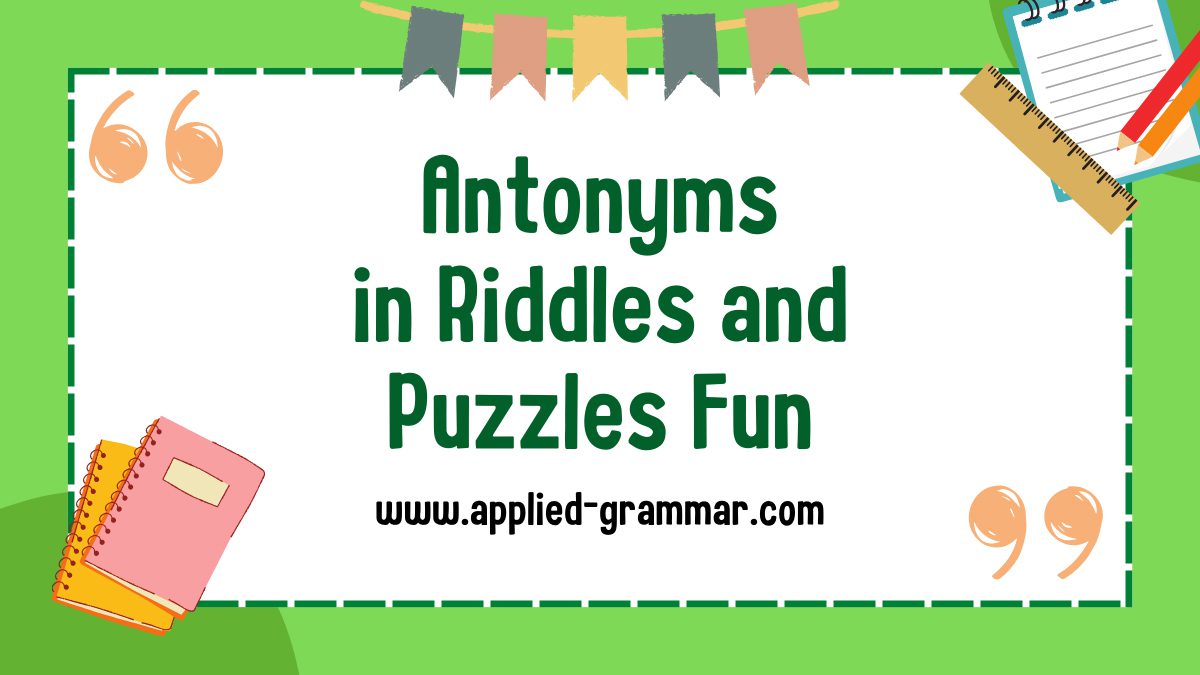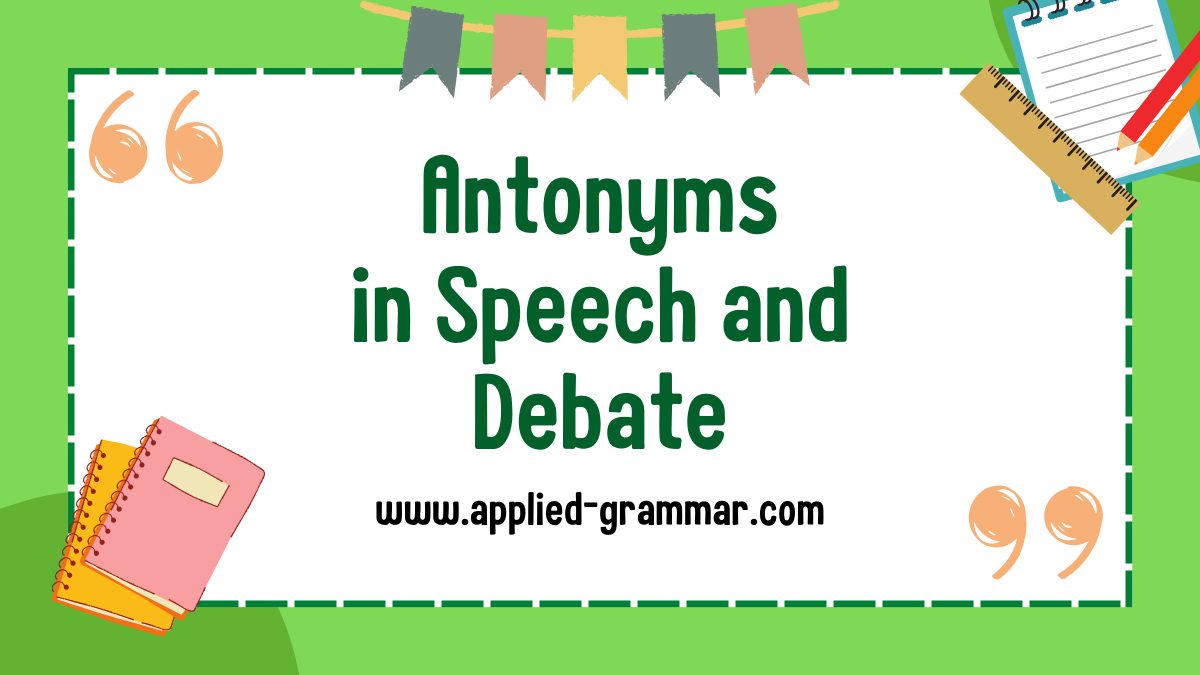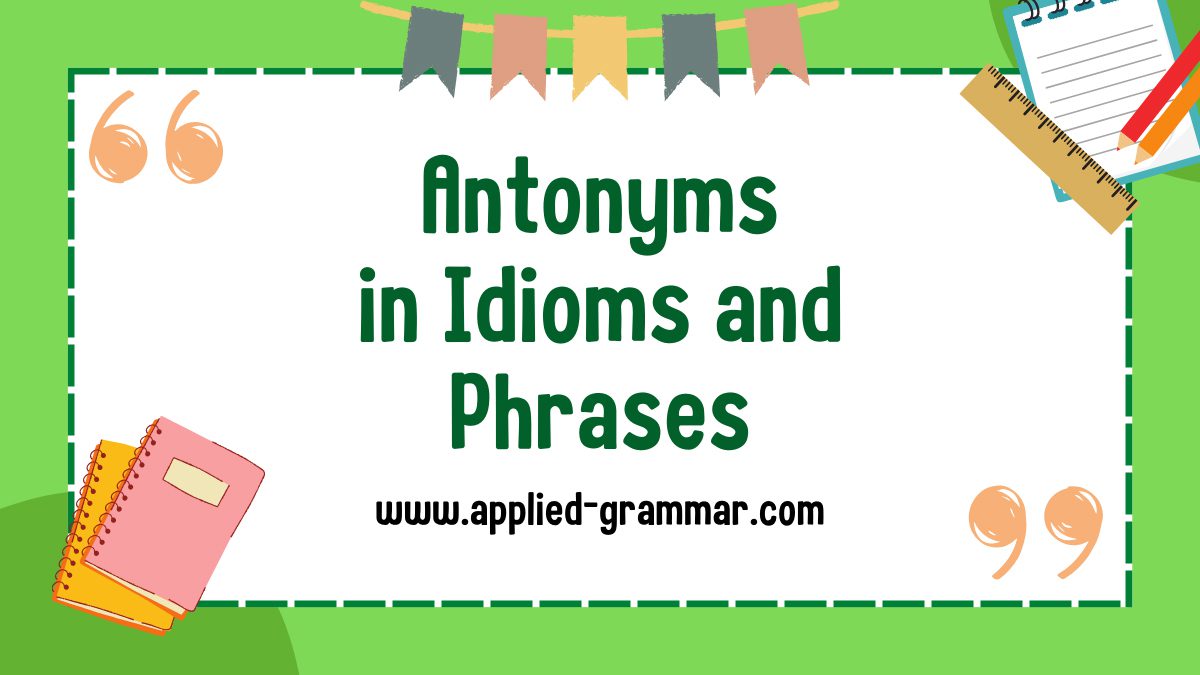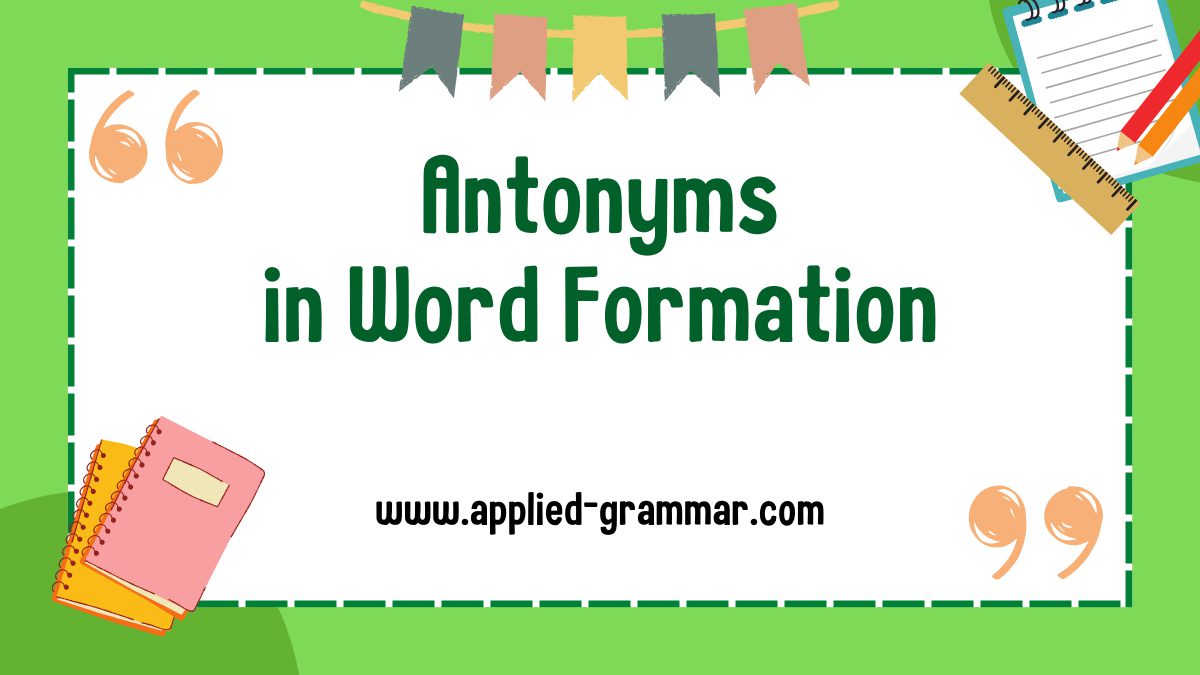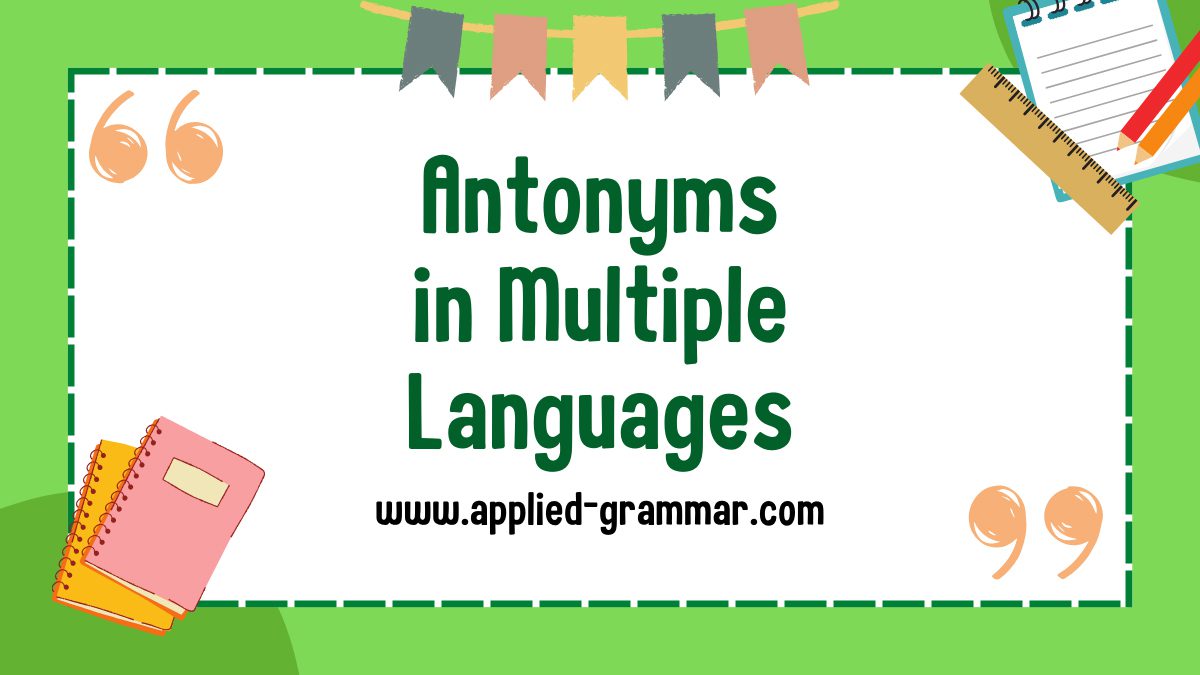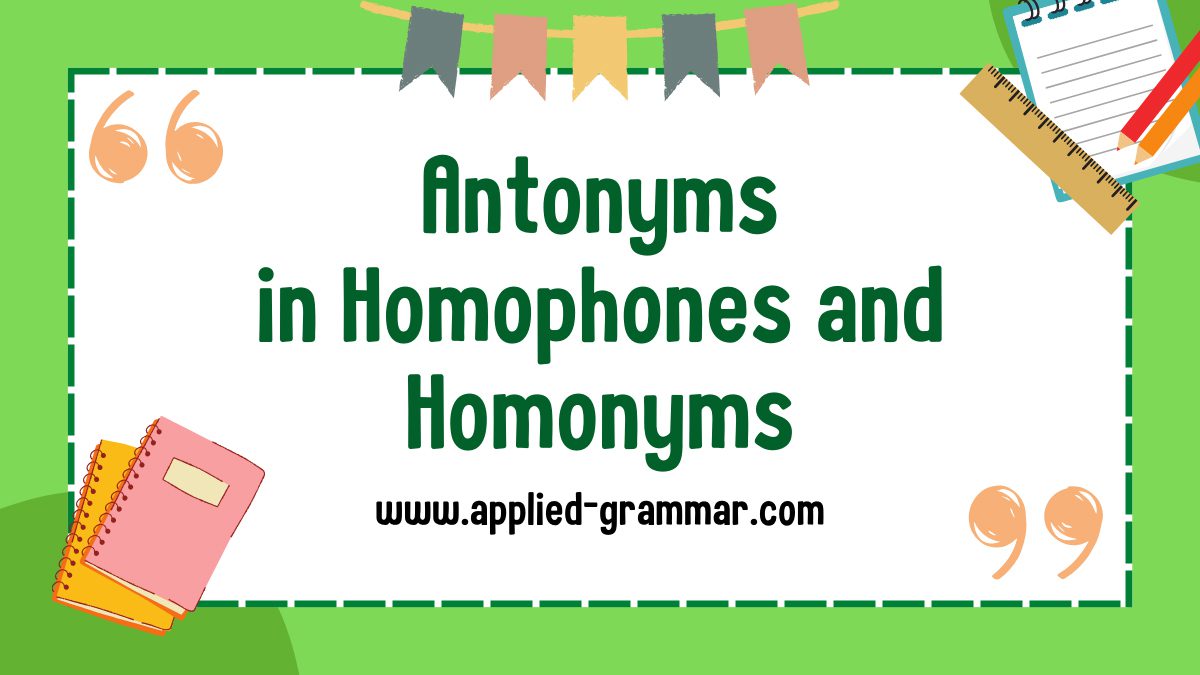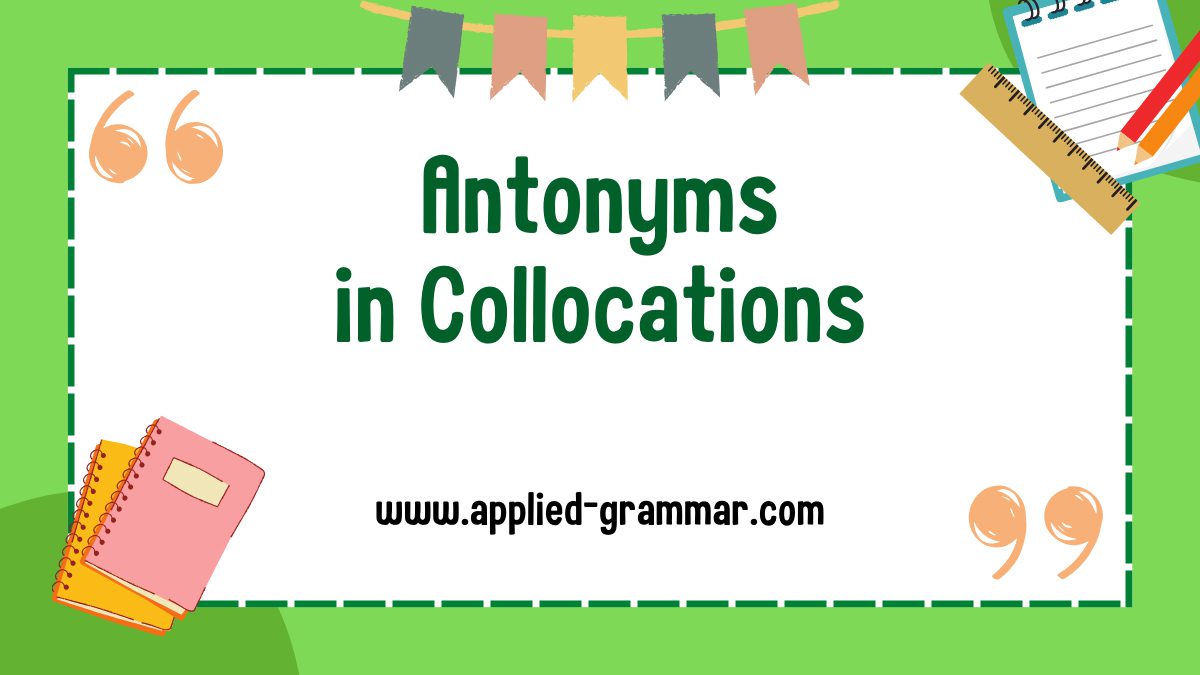Antonyms in Riddles and Puzzles: Fun with Language Games
If you’re a fan of word games and enjoy challenging yourself with riddles and puzzles, then you’re in for a treat with antonyms in riddles and puzzles. These language games are not only fun and engaging, but they also provide a unique way to discover the area of antonyms and expand your vocabulary. In this … Read more
